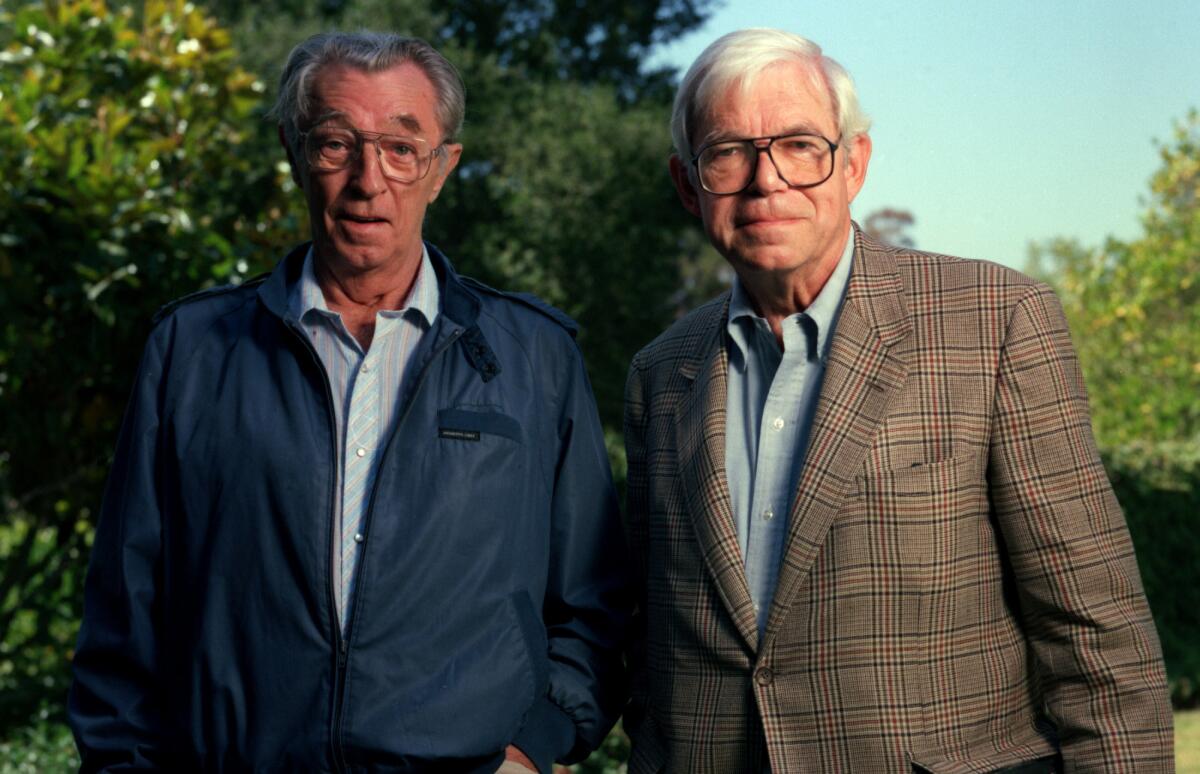How the late film critic Charles Champlin changed my life

- Share via
I never met the formidable L.A. Times arts editor and film critic Charles Champlin, who died Sunday at the age of 88.
But learning of his death Monday afternoon affected me deeply because Champlin altered my career path.
Strangely enough, I had been thinking about Champlin on Sunday evening and how he introduced me to the films of French director Francois Truffaut.
Sunday marked the 37th anniversary of the opening at the Cinerama Dome of Steven Spielberg’s “Close Encounters of the Third Kind.”
I had been in the massive line for the first showing that day. Of course, I was excited to see Spielberg’s latest film, but more importantly, I wanted to see Truffaut, who was playing the part of a French scientist in the classic sci-film. I was pursuing my master’s in film history and criticism at USC and was writing my thesis on Truffaut’s films dealing with children -- “Les Mistons,” “The 400 Blows,” “The Wild Child” and “Small Change.”
When I was a senior in high school in Denver, PBS premiered “Film Odyssey,” a 26-week series hosted by Champlin that featured 24 films and shorts from the Janus library.
I had been in love with films since I was 3 and by the time I was in high school, I was a film geek who would stay up late whenever I could to watch vintage movies on TV. But my foreign film knowledge was a sorely lacking.
So “Film Odyssey” was a revelation.
One of the first films that aired on the series was Truffaut’s 1962 masterpiece “Jules & Jim,” starring Jeanne Moreau and Oskar Werner. I vividly remember sitting in the living room as the film unfolded. The cinematic language was like nothing I had seen before -- the editing, the acting, the cinematography, the direction had me reeling. That night I grew up cinematically. Truffaut changed my life.
And for the next six months, I watched Jean Cocteau’s “Beauty and the Beast” and “Orpheus”; Jean Renoir’s “Grand Illusion” and “The Rules of the Game”; Akira Kurosawa’s “The Seven Samurai” and countless other international and American films.
Champlin was a terrific host -- engaging and knowledgeable. He did wonderful interviews with directors and stars after showing the film. It was a great way of introducing American audiences to films by some of the world’s great filmmakers. I was so obsessed that I ordered the companion booklet to the series, which I would devour and devour to learn more about these filmmakers, most especially Truffaut.
My parents wanted me to get a master’s in library science, but I was totally miserable my first term at USC and they allowed me to transfer to the film school.
I learned shortly after I saw “Close Encounters” that Truffaut was in town and called his hotel room. The conversation was short but sweet -- his English left a lot to be desired -- but he seemed thrilled that I was writing my thesis on his films. A few months later, after I sent him my completed thesis, a package arrived in the mail from Paris. Truffaut had written a lovely thank-you note -- that letter is framed -- and enclosed two books, including one written by influential French film critic Andre Bazin, which Truffaut autographed.
If it wasn’t for Champlin and Truffaut, I probably wouldn’t have ended up writing about my grand passion. I owe them everything.
More to Read
Only good movies
Get the Indie Focus newsletter, Mark Olsen's weekly guide to the world of cinema.
You may occasionally receive promotional content from the Los Angeles Times.










